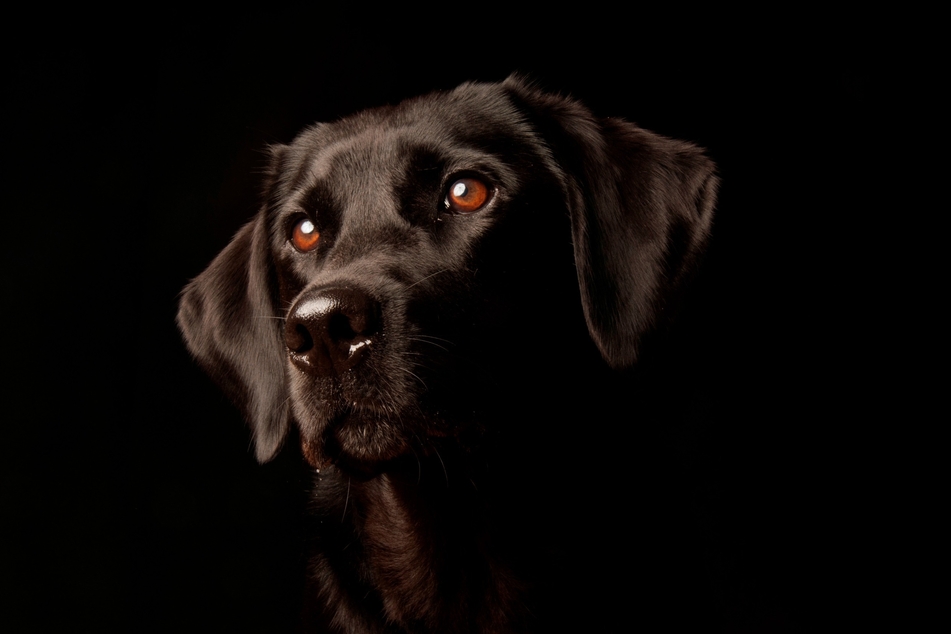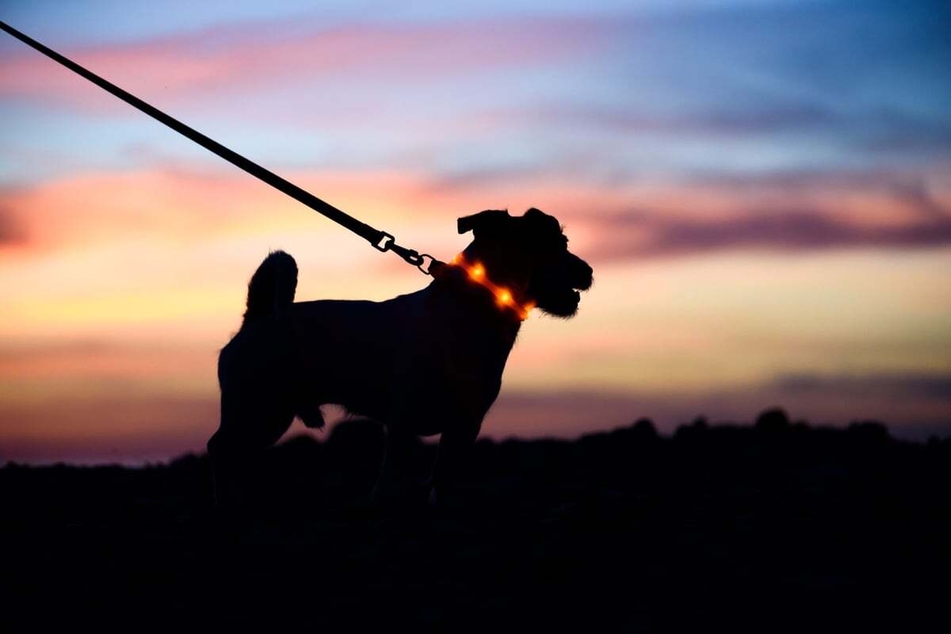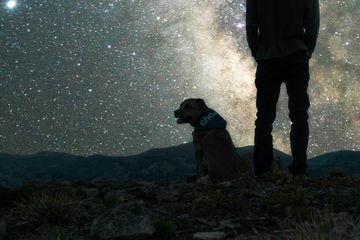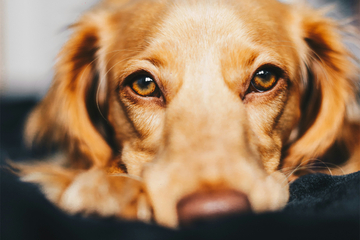Can dogs see in the dark?
Dogs have many extraordinary characteristics, but how do their eyes truly stack up? Can dogs see in the dark and, if so, in what colors, and how well do they see compared to cats?

When evening walks are dark, humans have to find their way around with nothing but the help of their phone's flashlight.
Yet, in many cases, dog owners will notice their pups running around like nothing has changed. Could it be that dogs have excellent night vision, or is something else to blame for this exuberance?
Cats and dogs are very different animals, even if they play very similar roles in human life. How does a dog's night vision stack up to a cat's, though, can dogs see in the dark, and if so, how well and in what colors?
Can dogs see in the dark?
It is generally accepted and widely known that a dog's sense of smell is far superior to ours and one of its primary senses. The problem is that along with such beliefs comes the assumption that not only can dogs only see in black and white, which is a disproven myth at this point, but that they have poor-quality eyesight that should be dismissed.
In reality, dogs have great eyesight and can see in the dark far better than humans. While we have more attention to detail and can modify our sight through the use of technology, dogs are capable of processing small amounts of light far better than we are, making their sight far superior at dusk and dawn.
That being said, seeing as dog eyes still work by gathering and making sense of light, in spaces where things are pitch black, and there is an entire absence of light, dogs see just as badly as humans. In such a situation, you'd certainly rather be a cat than a dog.
To even posit whether dogs can see in the dark is in itself a little farcical – if a dog's eyes work by collecting light and transforming it into information in the brain, then where there is light surely there's sight?

How well can dogs see in the dark?
Dogs can see very well in the dark, so long as there is still some light entering their eyes. The difference between us humans and our doggo friends is that their eyes collect far more light, making the threshold for "darkness" far darker than ours. How do they do this, though?
Well, it all comes down to the tapetum lucidum, a reflector system within the eye that provides retina cells a second opportunity to collect light. The human eye does not have a tapetum lucidum, making it less sensitive to and effective at collecting lower levels of light.
A 2004 study that compared the tapetum lucidum among different species described it succinctly: "It normally functions to provide the light-sensitive retinal cells with a second opportunity for photon-photoreceptor stimulation, thereby enhancing visual sensitivity at low light levels."
No matter how many rods and cones the human eye has, it doesn't have a tapetum lucidum and, therefore, won't be able to collect light as effectively, making it less capable of seeing at lower light levels. Even if a human has more accurate eyes in terms of its perception of color, that accuracy is limited to when there is enough light entering the retina.
This is also why dogs and cats have a similar ability to see in the dark. While cats are superior, largely due to the shape and design of their eyes, as well as their ability to reflect and reuse light, they also have a tapetum lucidum, making them innately better at seeing at lower light levels than we are.
Professor Paul Miller, from the University of Wisconsin-Madison, says that dogs "can probably see in light five times dimmer than a human can see in." This is largely due to the fact that dogs evolved to see "in both bright and dim light, whereas humans do best in bright light."
"No one is quite sure how much better a dog sees in dim light, but I would suspect that dogs are not quite as good as cats."
What colors can dogs see in the dark?

While dogs do not see in black and white, as many believe, they do see fewer colors than we do. Dogs have dichromatic vision, defined by Britannica as when an individual is "unable to distinguish red and green." As a result, dogs generally see far duller colors than we do.
In addition, dogs see different shades to us, similar but not the same as how colorblind people see the world. These colors are often shades of blue, violet, gray, and yellow. This lack of complicated color, however, is made up for by the fact that dogs have a far wider peripheral field of vision and can detect motion far quicker than we can.
If you are particularly interested in what a dog's vision looks like in practice, there's actually an online tool that'll process your images for you and give them back the way in which your dog would see the world. You'll notice muted coloring, and a general dullness to the returned picture.
In the dark, though, your dog's vision will also be far less capable of picking up color. This is due to the lack of light reflecting in their eyes, providing them with less information to be processed in the brain.
Can cats see in the dark better than dogs?
While dogs have far better eyesight than we do in the dark, cats are on a whole other level. Due to the fact that a cat's tapetum lucidum reflects far more light than a dog's, cats are far more sensitive to small amounts of light and, as a result, have far better night vision than dogs.
In addition, a cat's tapetum lucidum is more effective due to the fact that they have vertical slit-shaped pupils that protect against bright lights. This allows light to be more accurately directed, in higher quantities, into the cat's eyes, painting a better picture when processed by the brain.
Dogs have extraordinary night vision, though, and this shouldn't be undermined by the simple fact that cats are even better. Cats are semi-nocturnal animals, after all, so it's hardly a surprise.
Cover photo: Unsplash/Marek Szturc




